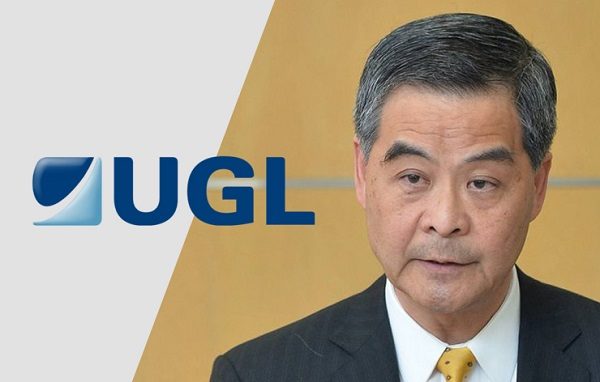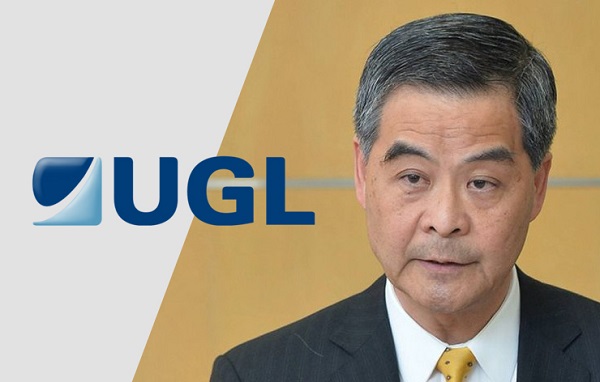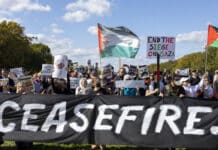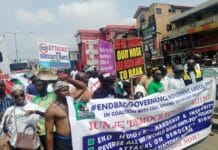Anger as government drops Leung and Cheng prosecutions
Zuo Ren, Socialist Action (CWI in Hong Kong)
Marchers in Hong Kong on 1 January will protest official corruption and the refusal of the Hong Kong government to pursue legal action against two prominent pro-Beijing politicians. On 12 December, the Justice Department of Hong Kong, without any reasonable ground, dropped the case against the former Chief Executive Leung Chun-ying, who is suspected of accepting HK$50 million from UGL, an Australian company, when he was in office.
During the mass Umbrella Movement of 2014, in which 1.2 million participants demanded universal suffrage in Hong Kong, Australian media reported that Leung had signed a secret agreement in 2011 with UGL on behalf of DTZ, a real estate consultancy firm of which Leung was a director. At that time Leung was running in the small-circle ‘election’ for Chief Executive and after he got into office received a remuneration of HK$50 million from this agreement.
In 2012, Leung appointed Raymond Chien Kuo-fung, a director of UGL, as the chairman of the MTR Corporation. The Hong Kong government is the biggest shareholder in MTR. Chien’s appointment further highlighted the interest relationship between Leung and UGL.
The decision of the Justice Department to drop this case triggered a 1,200-strong demonstration on December 23. The treatment of Leung, a hardline representative of Hong Kong’s authoritarian pro-China establishment, contrasts sharply with the legal pursuit of many pro-democracy legislators in recent years, some of whom were prosecuted for illegally accepting funds from a pro-democracy media company, without any evidence to show these legislators had used the donations for personal purposes. This experience shows that the “rule of law” under the capitalism is a tool for attacking those who oppose the establishment

In addition, the Justice Department has also announced there will be no charges against its own chief, Teresa Cheng Yeuk-wah, over illegal building. Only Cheng’s husband will be prosecuted – a smokescreen. When Cheng took office as Secretary of Justice last year, a key government post because of her role in directing the crackdown against the democracy movement, it was found that four of her properties had illegal structures. Cheng argued she was unaware of the illegal structures but this argument has no credibility at all because Cheng is also a chartered construction engineer.
The Hong Kong government has previously shown lenience towards other big shots that were found guilty of illegal building, for example, the former Chief Secretary (second only to Chief Executive in the city government), Henry Tang Ying-yen. According to the law, illegal construction work can lead to a fine of HK$400,000 and imprisonment for two years.
However, only Tang’s wife was charged and fined HK$110,000. For Tang’s fabulously rich family, such a small sum of money is a drop in the ocean and so there was no deterrent effect at all. It shows that the laws under the capitalist system are often very ‘flexible’ for the rich and the powerful. They are often forgiven based on political considerations.
The ruling class fundamentally controls the entire judicial system, and in reality “judicial independence” is a sham. The Bar Association, referring to Leung’s case, pointed out that in the past the Justice Department would at least seek “independent legal advice” from barristers unrelated to the department when handling sensitive cases, such as cases of officials involved in corruption or abuse of power.
But this type of “independent” legal opinion has minimal practical effect. For example, when the former Secretary of Finance was discovered to have bought a car in 2003, just before his own department announced an increase in the Motor Vehicle Registration Tax, the Justice Department sought “independent legal advice” but eventually decided not to press charges. Whether the government will prosecute the rich and powerful largely depends on how much pressure they feel from the masses.
However, this time the Justice Department has abandoned even this attempt to sugar coat its actions. This proves once again that the so-called ‘communist’ regime of China – in reality a government of billionaires – is imposing an iron fist on Hong Kong, and over its judicial system (which is legally separate from that of mainland China). This is what Xi Jinping calls “full governance” over Hong Kong. This time it is to protect Leung, the former Chief Executive appointed by China’s dictatorship and now a high official in the regime.
This is similar to when the Standing Committee of the National People’s Congress (China’s fake parliament) passed the co-location arrangement for the new high-speed railway to Guangzhou. This was done by bypassing Hong Kong’s Legislative Council and imposing the orders of China dictatorship on the city.
The decision not to seek “independent legal advice” in the CY Leung case also reflects growing tensions between the Chinese dictatorship and Hong Kong’s judicial circles. Especially in the context of the escalating conflict between China and the United States, the Hong Kong judiciary, which is more influenced by bourgeois liberalism and inclined towards “rule of law”, a tenet of liberal capitalism, may be encouraged to resist the will of China’s dictatorship.
The Justice Department is afraid that in the event of an “independent legal opinion” suggesting charges should proceed against Leung, the public mood will feel it is on stronger ground to protest the government’s actions.
After leaving the post of Chief Executive in 2017, Leung has continued to exert open pressure, through hard-line agencies of the Chinese regime in Hong Kong, such as the Basic Law Committee, and the Standing Committees of the NPC and the CPPCC in Hong Kong, over the Hong Kong government to repress calls for independence and introduce oppressive laws. This is mainly in order to consolidate the power of his own faction within the government. Moreover, there was even a rumour that Leung intended to stand in the next Chief Executive ‘election’, in 2022. It’s obvious that Leung does not want to be thrown in prison, a fate that befell his predecessor Donald Tsang Yam-kuen, and for the time being he has banished this nightmare.
The Hong Kong government chose to spare Leung and Cheng almost at the same time, because it believed the opposition had been crushed, and it could launch further attacks on the opposition following the victory of one of the main pro-government parties in a crucial Legislative Council by-election on November 25.
Despite sometimes sharp conflicts between the factions of Leung and Carrie Lam, when the establishment faces grassroots resistance, the different factions of the ruling class will often combine to repress the masses. The Hong Kong government does not want to appease mass anger by prosecuting Leung and would rather show itself to be resolute and against compromises. Additionally, if the government had chosen to prosecute Leung, this would have further highlighted the fact that Cheng, from Carrie Lam’s faction, was being protected by her patron. In this case the masses would see more clearly that the judicial department is not “independent” as it claims, but rather a tool of those who wield power.
Even if for a period of time there are no large-scale or sustained struggles against the rampant “goveruption” that protects corrupt government officials, the masses’ former confidence in parliament and the law courts is being worn away. These institutions are traditionally used to defuse mass resistance to the policies of the capitalist elite. By undermining and exposing them, the government is ensuring that the masses will increasingly look to struggles outside the system – on the streets, in workplaces and working class communities.
Socialist Action has repeatedly warned that working people cannot trust the capitalists’ judicial system. We call for an independent commission of inquiry, elected and including representatives of grassroots working people, to thoroughly investigate the cases of Leung and Cheng, and severely punish guilty officials. At the same time, this kind of ‘legitimate’ corruption is a support pillar for Hong Kong’s capitalist system; only by defeating capitalism can we eliminate privilege and corruption!




